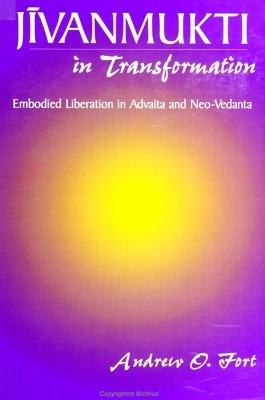
Jīvanmukti in Transformation
State University of New York Press (Verlag)
978-0-7914-3904-3 (ISBN)
Liberation (mukti) is a central concern in Hinduism, particularly in Advaita (nondual) Vedanta, perhaps the best known school of Hindu thought. There has been vigorous debate and analysis about the possibility and nature of liberation while living (jivanmukti) in Advaita from the time of Sankara, the school's founder, to the present day. While the general conclusion seems to be that one can achieve living liberation, members of the Advaita tradition also regularly express reservations about, or describe limitiations to, full liberation while embodied.
Jivanmukti in Transformation examines the development and transformation of the concept of jivanmukti from the Upanisads to the modern era. It gives the most thorough treatment of the scholastic Advaita tradition on liberation while living, makes the novel argument for a distinct "Yogic Advaita" tradition found in the Yogavasistha and Jivanmuktiviveka, and explores the modern "neo-Vedanta" view of jivanmukti, which has been influenced by modern Western concepts like global ecumenism and humanistic social concern for all. The book includes analysis of the views of modern Hindu figures such as Swami Vivekananda, Sarvepalli Radhakrishnan, Ramana Maharshi, and Sankaracaryas of Kanchi and Sringeri, and considers these thinkers in the context of current academic discussions about the encounter of India and the West.
Andrew O. Fort is Professor of Asian Religions at Texas Christian University. His previous publications include Living Liberation in Hindu Thought (coedited with Patricia Y. Mumme), also published by SUNY Press and The Self and Its States: A States of Consciousness Doctrine in Advaita Vedanta.
Preface and Acknowledgments
Abbreviations
Introduction: What Kind of Liberation is Liberation While Living?
Part 1. Embodied Liberation in Traditional Advaita Vedanta
1. The Development of the Idea of Embodied Liberation before Sankara: The Early Upanisads, the Brahmasutras, Gaudapada, and the Bhagavad-Gita
2. Knowing Brahman While Embodied: Sankara on Jivanmukti
3. Mandana Misra and Sankara's Disciples on Jivanmukti: Suresvara, Sarvajnatman, and Vimuktatman
4. Jivanmukti in Later Scholastic Advaita: Prakasatman, Citsukha, Madhusudana Sarasvati, Prakasananda, Sadananda, and Dharmaraja
Part 2. Jivanmukti in "Yogic Advaita"
5. Ramanuja and Samkhya/Yoga on Liberation While Living
6. Yogic Advaita I: Jivanmukti in the Yogavasistha
7. Yogic Advaita II: Liberation While Living in the Jivanmuktiviveka
8. Yogic Advaita III: Jivanmukti in the Pancadasi, the "Minor" Upanisads, and Madhusudana's Gudarthadipika
Part 3. Embodied Liberation in Neo-Vedanta: Adaptation and Innovation
9. Neo-Vedanta and the Transformation of Advaitic Jivanmukti
10. A Liberated Being Being Liberated: The Case of Ramana Maharshi
11. Candrasekharendra Sarasvati: Sankaracarya and Jivanmukta?
12. The Liberated Being and Social Service: Vivekananda, Radhakrishnan, and the Neo-Vedantic JIvanmukta
Notes
Bibliography
Index
| Erscheint lt. Verlag | 3.9.1998 |
|---|---|
| Zusatzinfo | Total Illustrations: 0 |
| Verlagsort | Albany, NY |
| Sprache | englisch |
| Maße | 152 x 229 mm |
| Gewicht | 354 g |
| Themenwelt | Geisteswissenschaften ► Philosophie ► Östliche Philosophie |
| Geisteswissenschaften ► Religion / Theologie ► Hinduismus | |
| ISBN-10 | 0-7914-3904-6 / 0791439046 |
| ISBN-13 | 978-0-7914-3904-3 / 9780791439043 |
| Zustand | Neuware |
| Informationen gemäß Produktsicherheitsverordnung (GPSR) | |
| Haben Sie eine Frage zum Produkt? |
aus dem Bereich


